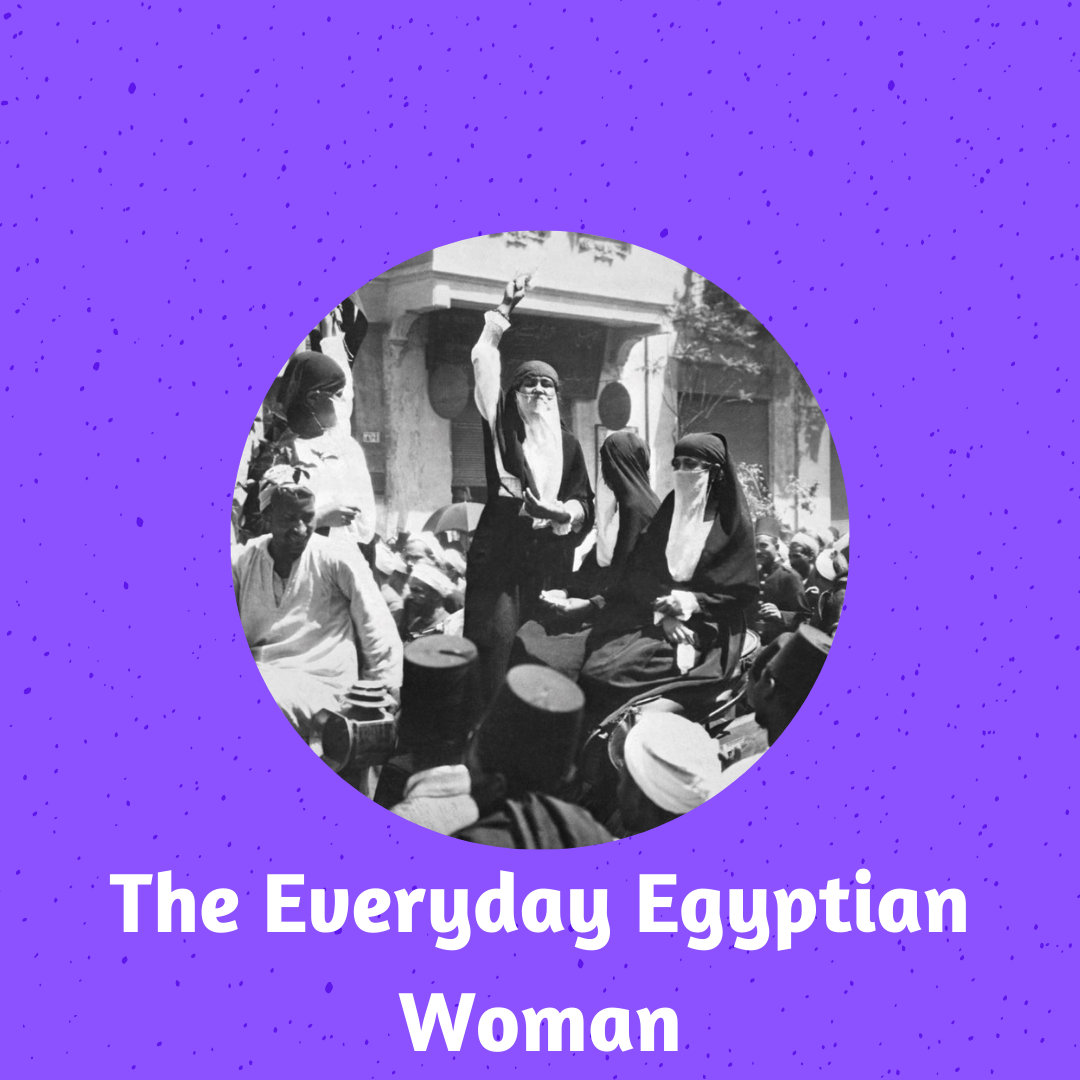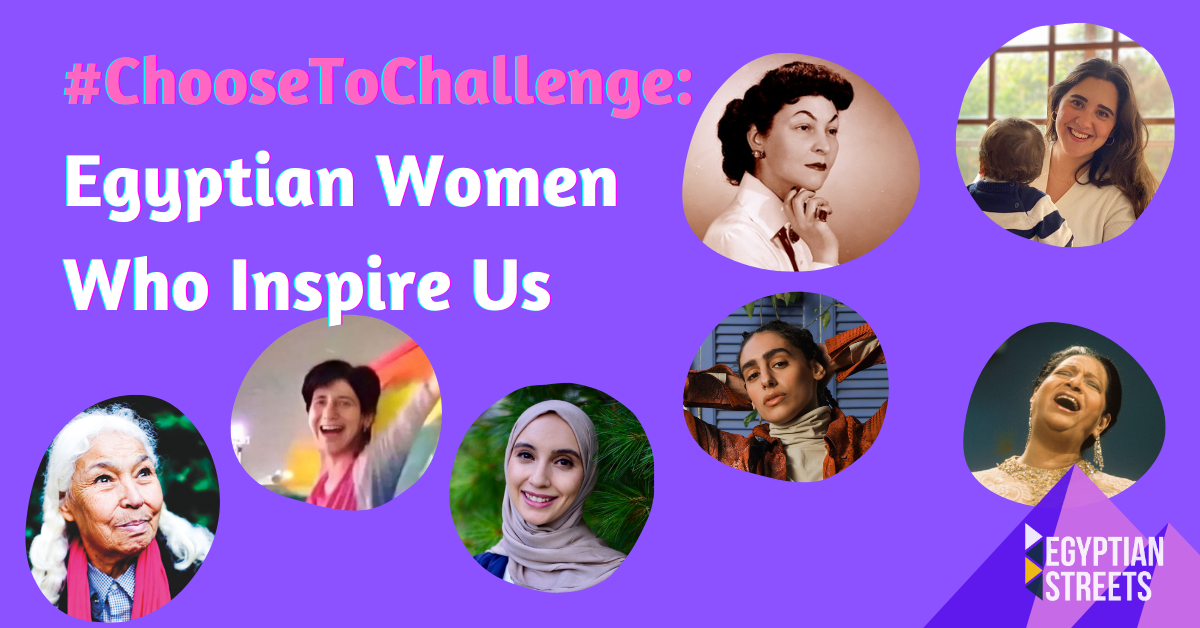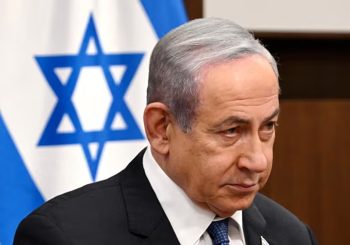Every day, and not just on International Women’s Day, they inspire us. They inspire us through their rebellion, the positive impact they’ve had and the lives they’ve decided to lead for themselves, helping other women – and sometimes men too – find the courage to do so as well. They inspire us through their humility, with reminders that the journey ahead is long and that solidarity, as we seek to shed old ways, is pivotal to success.
This humble list is our very own Egyptian Streets selection, celebrating an intersection of women in politics, arts, culture and more in no particular order.
Iman ElDeeb

Mirna Abdelaal – Politics & Society Writer: It isn’t so often that we hear about Egyptian women in fashion or modelling, and this is why for this International Women’s Day I want to honour Iman ElDeeb, who runs one of Egypt’s first and most prominent modelling agencies ‘UNN Models’ with her sister Yousra ElDeeb. This isn’t just because she works in fashion, but more specifically, it’s because the issue of women owning their unique look and image is never really turned into a real discussion, and how much it can impact the way they feel, work, and connect with their true characters.
I don’t want to start by saying that ElDeeb is simply ‘fighting stereotypes’ by getting into modelling – a rare and quite a daring career choice for women in the region – but I think beyond that, she has helped many young girls across different parts of Egypt to express their raw and natural Egyptian beauty to the rest of the world while opening for them doors to travel, learn and discover new worlds that were beyond their reach. More than just a simple fashion or modelling agency, ‘UNN Models’ is also a community that nurtures and supports young Egyptian women to embrace their personality, individuality, and very own unique image.
ElDeeb’s story on its own starts with a chapter of fierce determination, passion and willingness to achieve what she wants. She had little to no background in fashion or modelling before applying to study in Italy, and faced strong opposition from her father to travel on her own and pursue a career in fashion. But she persisted and took the leap. It takes a lot of strength to truly trust her guts and intuition at such a young age, and she serves as an example for other young girls that it’s okay to create your own path – you don’t always, always have to be guided by someone else.
When we strip down all the glamour and the art, we find that beneath the world of fashion there are also voices – and faces – yearning to express, create, dream and feel that they belong. As Cyndi Lauper sings in her 80s hit single, “Some boys take a beautiful girl and hide her away from the rest of the world, I wanna be the one to walk in the sun.” In this case, ElDeeb, and all the other models, chose to walk in the sun.
Nawal El Saadawi

Sara Ahmed – Managing Editor: Often perceived as the most radical and extremist feminist in modern day Egypt, Nawal El Saadawi has earned all due consideration as a women’s rights activist. Although the Egyptian figure’s background was as a physician and a psychiatrist, she quickly rose to prominence for her writing and political activities, earning her the title of the ‘Simone de Beauvoir of the Middle East’ with her most famed books being ‘Woman at Point Zero’, ‘God Dies by the Nile’ and ‘The Hidden Face of Eve’. Her writings are powerful and blunt, with a particular focus on the origins of sexism, Arab identity, sexuality, women’s education, the perils of classism and capitalism on women’s rights as well as the harms of colonialism, fundamentalism, and oppression.
Although she founded the Arab Women’s Solidarity Association and co-founded the Arab Association for Human Right, the influential household name’s unique voice in Middle Eastern and Arab feminism lies in her passion, straight-forwardness, and brutal honesty. Having endured FGM as a child, she grew to be a staunch and vocal opponent to the practice despite it still being a taboo in the Arab world; she steadily incorporated her experiences and insight into her literary projects, especially as she critically tackled Islam and its influences on women rights.
She was imprisoned by President Sadat in the 1980s for voicing criticism against the government, and still managed to record her thoughts on tattered toilet paper using an eyebrow pencil. Following her release, her life was in peril as she was deemed dangerous by Islamists and had to flee the country where she took on various teaching positions in the US prior to her return to Egypt four years short of 2000. Years later, during the January 2011 revolution, she was among many of the protesters calling for a change in the country with a particular focus on shifting Egypt’s educational system with religion.
El Saadawi’s rebellious spirit is a memento for Egyptian women today, and her iconic braids are reminiscent of a lost childhood – it is through El Saadawi’s efforts and continuous criticism of FGM that younger generations of Egyptian women have been spared the practice so heavily condemned by its former victims. El Saadawi carries their voice across Egypt and beyond.
Nour Emam

Amina Zaineldine – Culture & Society Writer: I don’t precisely recall the circumstances under which I first heard of Mother Being, but I saw Nour Emam talking about pregnancy and childbirth and simply remembered her as a girl I went to school with for a few years. We sang in the same talent show and I heard that she had shaved her head at some point. But I was intrigued, because I could tell that what she was talking about could be useful to many, including perhaps one day myself. I followed the Mother Being account, not yet realizing the significance it would come to bear to me.
As I followed her work with gradually increasing interest, I noticed first of all that practically every word she said or wrote on her reproductive and sexual health education platform was available both in English and Arabic – including any medical or scientific terms. The effort to make her work accessible was evident and appeared also to be effective judging by the speedy growth of her following across the Middle East. I also noticed the lengthy, patient Q&A sessions she held on her Instagram stories in which she answered questions posed by her audience informatively and without any condescension – no matter how often the questions were repeated. Often these sessions would last for hours.
I learned from following her that Nour had taken a sharp career shift from music to women’s health and sexual education when she trained to become a doula – a companion to women or couples during pregnancy, childbirth, and the postpartum period – after having had a difficult personal experience herself. Responding to her own challenges by choosing to provide others with the help she was unable to find has always been a motivation I admired endlessly. I have also always admired anyone whose dedication to truth, knowledge, facts, and education trumped their desire for personal fame or popularity. Nour did not sensationalize, embellish, or exaggerate. She spoke about herself without making the struggle about herself. She acknowledged, lifted up, and supported other women working tirelessly for the cause, and addressed societal challenges proactively.
Nour’s grace under pressure and attack from those opposed to giving women the chance to understand their own health, rights, and bodies has kept me in awe for the past months, and every encounter I have had with her showed nothing but candour, sincerity, and selflessness. Her choice to put herself out there to tackle a topic so important yet so unfortunately taboo and controversial is an act of bravery that has helped and will continue to help many women in Egypt and the region, and I personally cannot wait to see what more Mother Being has to offer in the future.
Rowaida Abdelaziz

Noran Morsy, Writer & Podcast Producer: I first came across Rowaida Abdelaziz when I was listening to an episode of one of my favorite podcasts Women Who Travel. She was a guest on the podcast, talking about her experience as part of an Egyptian immigrant family in the U.S. and how that shaped her travel experience growing up. Rowaida spoke about her Egyptian upbringing in a way that was very relatable to me, and I tend to look up any name that sounds Arab or Egyptian, so I searched her name.
I found that she was a journalist covering intense topics like Islamophobia and social justice within the Muslim community in the United States.
Later on, I kept seeing Rowaida pop up in the media I watch, interviewing the cast of Ramy, appearing on webinars and seeing her byline in popular articles. She was also very involved with lighter topics such as the arts in the Muslim community, travel and joy for Muslims, giving us an accurate portrayal that isn’t limited to islamophobia and hate crimes.
She currently works as a reporter for Huffpost giving Muslims everywhere a dignified image where they tell their own stories. Most importantly, she’s a proponent for Muslim women journalists and that she shouldn’t be the only one out there. Rowaida inspires me to work and tell stories accurately without compromising my identity for any reason.
Doria Shafik

Olivia Mustafa, Intern: Doria Shafik was bold, spirited, and knew the true potential of demonstrative activism. She believed that “nothing worthwhile can be accomplished without suffering” – and it was this same enduring struggle for women’s rights which inspires myself and others to this day, and it is exactly this that I believe earns her a firm place on this list of inspirational Egyptian women.
On the 19th of February 1951, she literally and figuratively found herself at the forefront of women’s suffrage. Shafik led 1,500 women united from two prominent feminist groups to storm parliament with a series of demands, including women’s right to vote and hold office, which were later implemented as a direct result of her action. To me, the sentiment of uniting women in the face of an overarching male-dominated power structure holds as much relevance today across the world as it did 70 years ago.
Yet there is more to my admiration for Shafik than her political endeavours alone. Whether it be her powerful poetry, highly-regarded PhD from the Sorbonne which argued for equal rights, founding of the women’s magazine ‘Bint Al Nil’ or participation in the ‘Miss Egypt’ pageant, fighting for the feminist cause was always at the heart of her every venture. Cairo University rejected Shafik for a teaching position as she was allegedly too modern – but it is exactly this ‘modern’ quality of being a trailblazer, at the cutting edge in academic, political and social realms, which defines her as my Egyptian feminist icon.
Following a hunger strike against Abdel Nasser’s rule, Shafik’s works and name was banned from circulation in press and publishing, and she faded from the public eye. But we must acknowledge her legacy and spirit as one which shaped the course of women’s history in Egypt.
Sarah Hegazy

Niveen Ghoneim, Senior Writer & Editor: Courage has always been at the heart of what it means to be a woman. To exist and survive and thrive in such a hostile world, women must have courage in spades, even more so when it comes to living openly as a queer woman in Egypt. In the country’s recent feminist history, no one has embodied courage like Sarah Hegazi.
Born and raised in Egypt, the late human rights activist was never exactly destined for a charmed life. As is the case for many women in Egypt, Hegazi’s life was always bound to take a tragic turn due to the confluence of the many forms of systemic discrimination she faced as a woman, a political dissident and a lesbian. These all stemmed from pervasive patriarchal values in Egyptian society.
The socialist activist died last year, after she took her own life on June 14th in her home in Toronto, Canada, where she had lived her final years, in exile. Her exodus from Egypt came following her arrest in September 2017 for waving a rainbow flag at a Mashrou’ Leila concert in Cairo.
Hegazi was charged with inciting debauchery and immorality and spent three months in jail. During her imprisonment, Hegazi was tortured. In an article she wrote for Mada Masr, Hegazi claimed that police officers subjected her to electrical torture and instructed inmates to beat and sexually assault her.
She was ultimately released from jail, but the trauma she suffered during her incarceration later led her to develop symptoms of post-traumatic stress disorder. She fled to Canada in 2018 and her mother died of cancer soon after.
“To my siblings, I tried to survive, but I failed. Forgive me. To my friends, the experience is cruel and I am too weak to resist. Forgive me,” she wrote in a note she left behind. “To the world, you were cruel to a great extent, but I forgive.”
It is easy to reduce Sarah’s story to its tragic end, but she was a lot more than an Egyptian gay icon, she was also an outspoken political dissident who fought for all Egyptians. She was a socialist activist and a member of the Bread and Freedom Party who believed in equality, liberation, justice and dignity for all Egyptians.
Most importantly, however, she was a friend to every member of Egypt’s besieged LGBTQIA community. Even in exile, she never stopped advocating for the liberation of Egypt’s sexual and gender minorities.
It is nearly impossible to enumerate the many, many ways Hegazi’s courage continues to inspire women, LGBTQIA youths and human rights activists everywhere. She not only had the courage to live her truth, but even in death, Sarah had the courage to forgive.
Umm Kulthum

Mary Aravanis, Arts & Culture Writer: One of the greatest Egyptian singers of all time, Umm Kulthum is a name, face and voice that is truly timeless. Her deep and powerful voice rings loud and proud to this very day, not just in Egypt, but across the entire world.
During her heyday, taking the time off every weekend to listen to Umm Kulthum sing was almost a form of worship across the nation. Whilst listening to ‘the voice of Egypt’, everyone – old, young, rich, poor – would suddenly become equal and united, as they would listen to her in an almost trance-like state.
For me personally, what would always stick out when it came to Umm Kulthum singing live in front of an audience were two things: first, the fact that she would always stand far away from the microphone (which is something I used to find odd as a child, but now I realize how significant this was) and second, the fact that despite there always being a large audience, she never failed to move each and every single person there.
When she gave a live performance, crowds were huge yet she always managed to make it seem personal and intimate. When I moved out of the country for a while, just hearing her voice and words from time to time would always bring me closer to home.
Even King Farouk decorated Umm Kulthum with the Order of the Virtues, a decoration that was usually only reserved for members of the royal family and politicians.
With statues and artworks dedicated to her to this very day, depicting her famous handkerchief and signature glasses and up-do, she is rightfully a legend.
The Everyday Egyptian Woman

Mohamed Khairat, Founder: Egyptian society would not function without everyday Egyptian women. These women, who are the main breadwinners in more than 30 percent of Egyptian households, are the warriors Egypt depends on, but are often not afforded enough recognition.
But who are ‘everyday Egyptian women’?
The everyday Egyptian women are the academics, street vendors, activists, farmers, parliamentarians, police women, entrepreneurs, street sweepers, military personnel, athletes and homemakers we know, and the many other women around us. These are the women who are leading their households, securing our borders, winning sports medals, educating our children, campaigning for disadvantaged individuals, and inventing whimsical products beyond our wildest imaginations.
Most importantly, they are the women who ‘Choose to Challenge’, and in doing so, are paving the path for a brighter future for all Egyptians.






Comments (9)
[…] 8 Egyptian Women Who Inspire Us […]
[…] 8 Egyptian Women Who Inspire Us […]